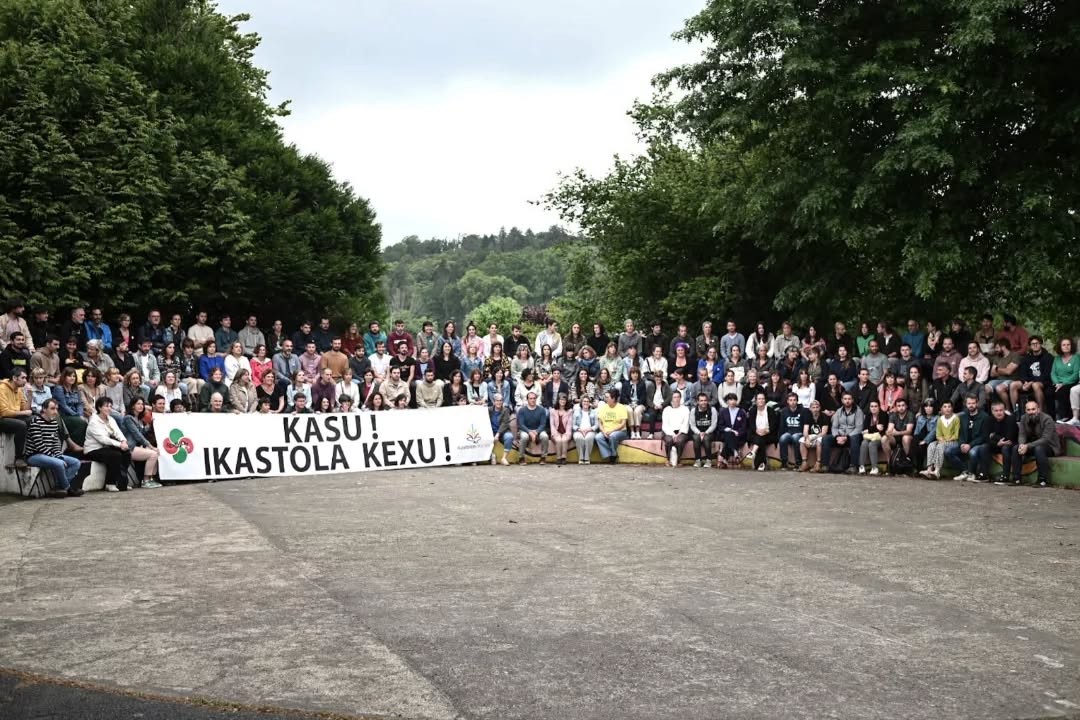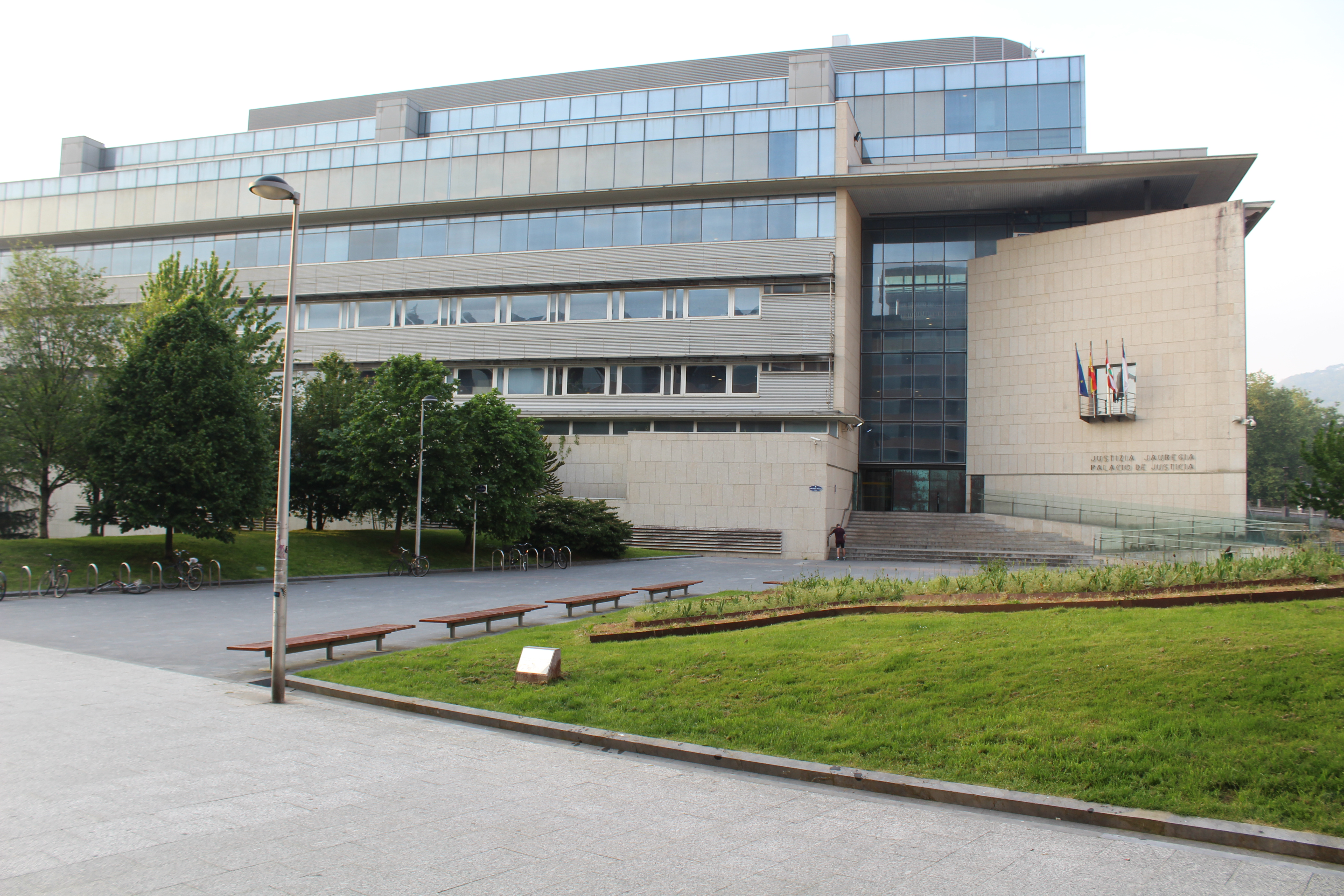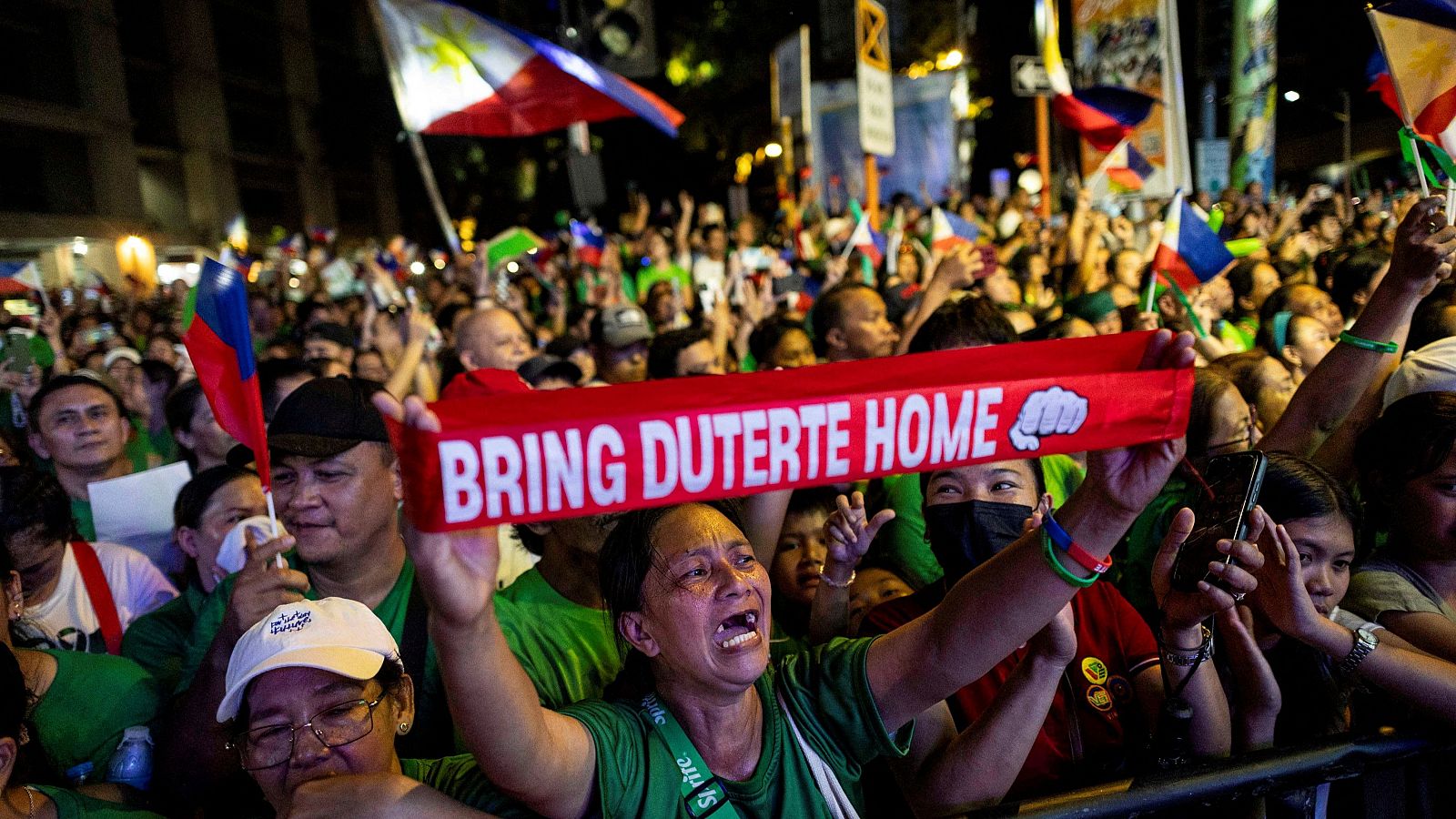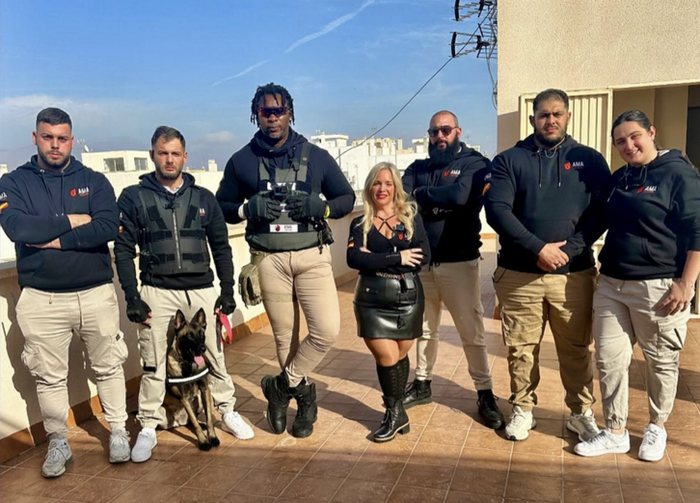Society
Environment
Politics
Economy
Culture
Basque language
Feminism
Education
International
Opinion
wednesday 21 may 2025
Automatically translated from Basque, translation may contain errors. More information here. 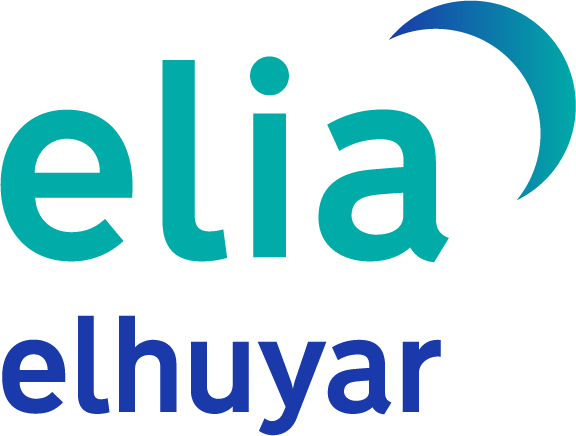
Catalan, a mirror where to look
- Not a bad exercise, wanting to subvert the state of your language and to study what the neighborhoods are like, to approach, to see and to learn from others. The book Ensenyar la llengua, by Professor Joan Solà, helps with this. The author is not a newcomer either, as he is the director of Gramàtica del català contemporani, the extraordinary guide writer that is a reference of the new generations of philologists and writers.
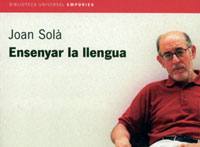
In Ensenyar la llengua, Solà is talking about something other than grammar. He has collected a wide range of writings, from lectures to articles, some in Catalan to others in Spanish. However, the aim is the same in each and every one of the pages: to address aspects related to the linguistic, social and political situation of the Catalan language. In this sense, the author has compiled the writings of the book between 1991 and 2003.
And in any case, the optimism is greater in the first works than in the last ones. For example, the author traces the dramatic state of the language in the final sections. The author is aware of this and has no concerns that anyone will take him into account. “You have to be responsible for the diagnosis you make, as well as the actions that come as a result of it: while my responsibility is to know this millenary reality of daily life and to communicate it not only to my neighbors, but also to external stakeholders.”
In his analysis of the linguistic situation in Spain, Solà recalls the regime of the dictator Franco, saying that he often imposed the ideology “one state, one nation, one language” by force. “Languages other than Spanish were persecuted, and the strength of the language – both hourly and seasonal – the greater it was, the greater the persecution itself. I think it is no exaggeration to say that the Catalan was in the first place and, as a result, was the victim of a much more subtle oppression. Even today [the text is written in 1994], it is in the first place and, if it is narrowed down, I would say that is why there are more and more political impediments to its progress.”
The book has more than two hundred pages and is complete to read. There are many cases, but only one cause: the normalization of the Catalan language. Even the cases, a machine is worth considering. For example, on November 8, 1994, the Royal Spanish Academy sent a letter to the President of the Government, Felipe González. They urged him to take specific protective measures for the Spanish language in the communities where some minority languages are spoken. Solà says that the attack on the Academy came as a result of the agreement between the CIU and the PSOE a year earlier. “The inclusion of an institution such as the Academy in this type of dirty game caused a flood of documents: various types of writings, official, institutional and private, were published against the institution that we have just mentioned. Well, one detail, but not secondary, but first and foremost, (...) with a flurry of documents, the academics were not aware of the extent of their letter, let alone admitted the wrong thing. So it’s two mental (and emotional) worlds that are irreparable.” In order
to bring to light the complicated situation of the Catalan language, Solà works on various aspects. Those who, in the word and in the tooth, and for whatever reason, have the tyranny of insisting on the limit established by the Spanish Constitution, have something and where to read in the teacher’s lines: “The Spanish Constitution makes a brief reference to languages other than Spanish (...) as ‘cultural heritage with specific protection and respect’, but there is no general law that corresponds to them, which often leads to conflicts that are difficult to resolve: for example, when the army, the judiciary, the media and the means of transport are involved.” In another passage we will read Solà’s opinion: “In this world, no one wants to save anyone else, but the other way around – in spite of these white words that we humans do, that is, despite the courtesy.” This is, then, as pure as the clean water of the fountain, Solà’s attitude opinions.
Joan Solà knows that she is crying, that she could be exhausted. Those responsible for the Basque Autonomous Community’s Vice-Ministry of Language Policy have also attributed this to many social actors, who are constantly crying. They have been asked for other messages to change their discourse... Joan Solà has also become aware of this danger. You know that. “I wonder if grievances can open the way to hope: the law of life is to dissolve the smallest, and our grievances are the result of that instinct of life. If we Catalan speakers want to survive, we will have to defend ourselves more effectively. I don’t know how, but we’ll have to find a way (...) A different system of values, we need to form a new symbology that will unite us in the future. At the moment, we only have the classic values of solidarity,
freedom, equality.” Looking in the mirror, what should we do? How to protect yourself, how to act not only by touching the cry...
And in any case, the optimism is greater in the first works than in the last ones. For example, the author traces the dramatic state of the language in the final sections. The author is aware of this and has no concerns that anyone will take him into account. “You have to be responsible for the diagnosis you make, as well as the actions that come as a result of it: while my responsibility is to know this millenary reality of daily life and to communicate it not only to my neighbors, but also to external stakeholders.”
The subtle crushing
In his analysis of the linguistic situation in Spain, Solà recalls the regime of the dictator Franco, saying that he often imposed the ideology “one state, one nation, one language” by force. “Languages other than Spanish were persecuted, and the strength of the language – both hourly and seasonal – the greater it was, the greater the persecution itself. I think it is no exaggeration to say that the Catalan was in the first place and, as a result, was the victim of a much more subtle oppression. Even today [the text is written in 1994], it is in the first place and, if it is narrowed down, I would say that is why there are more and more political impediments to its progress.”
The book has more than two hundred pages and is complete to read. There are many cases, but only one cause: the normalization of the Catalan language. Even the cases, a machine is worth considering. For example, on November 8, 1994, the Royal Spanish Academy sent a letter to the President of the Government, Felipe González. They urged him to take specific protective measures for the Spanish language in the communities where some minority languages are spoken. Solà says that the attack on the Academy came as a result of the agreement between the CIU and the PSOE a year earlier. “The inclusion of an institution such as the Academy in this type of dirty game caused a flood of documents: various types of writings, official, institutional and private, were published against the institution that we have just mentioned. Well, one detail, but not secondary, but first and foremost, (...) with a flurry of documents, the academics were not aware of the extent of their letter, let alone admitted the wrong thing. So it’s two mental (and emotional) worlds that are irreparable.” In order
to bring to light the complicated situation of the Catalan language, Solà works on various aspects. Those who, in the word and in the tooth, and for whatever reason, have the tyranny of insisting on the limit established by the Spanish Constitution, have something and where to read in the teacher’s lines: “The Spanish Constitution makes a brief reference to languages other than Spanish (...) as ‘cultural heritage with specific protection and respect’, but there is no general law that corresponds to them, which often leads to conflicts that are difficult to resolve: for example, when the army, the judiciary, the media and the means of transport are involved.” In another passage we will read Solà’s opinion: “In this world, no one wants to save anyone else, but the other way around – in spite of these white words that we humans do, that is, despite the courtesy.” This is, then, as pure as the clean water of the fountain, Solà’s attitude opinions.
The need for a new speech
Joan Solà knows that she is crying, that she could be exhausted. Those responsible for the Basque Autonomous Community’s Vice-Ministry of Language Policy have also attributed this to many social actors, who are constantly crying. They have been asked for other messages to change their discourse... Joan Solà has also become aware of this danger. You know that. “I wonder if grievances can open the way to hope: the law of life is to dissolve the smallest, and our grievances are the result of that instinct of life. If we Catalan speakers want to survive, we will have to defend ourselves more effectively. I don’t know how, but we’ll have to find a way (...) A different system of values, we need to form a new symbology that will unite us in the future. At the moment, we only have the classic values of solidarity,
freedom, equality.” Looking in the mirror, what should we do? How to protect yourself, how to act not only by touching the cry...
Most read
Using Matomo
#1
#3
Mikel Garcia Idiakez
#4
Garazi Basterretxea
Newest
2025-05-21
Ahotsa.info
Basque Language Day in Ribera, first time with great success
The first edition of the Basque Language Day in La Ribera was held on Saturday in Arguedas. Culture, neighbourhoods and festivities were combined in this day that united the peoples of the region around the Basque language.
2025-05-21
Elhuyar
On the rooftops of Vitoria-Gasteiz you can get 38% of the electricity consumed by the city
The UPV/EHU research group Ekopol estimates that by installing photovoltaic panels on rooftops in Vitoria-Gasteiz, 38% of the electricity consumed by the city can be obtained. They came to this conclusion using a high-precision methodology that they have developed.
2025-05-21
Irutxuloko Hitza
Anti-fascist call for Friday
A security rally is planned for this Friday 23rd in the Piedra de Alza Park. Several anti-fascist agents in San Sebastián have denounced that “a follower of Vox” is behind the call, which has also been called by the fascist agents Frente Obrero and Juventud Combativa.
2025-05-21
Unai Lomana Uribezubia
UN warns that 14,000 newborns are at risk of dying within the next 48 hours if Palestine does not receive aid
Israel has imposed a total blockade on Palestine for two long months. As a result, it has not received humanitarian assistance. Israel announced on Monday the entry of five trucks carrying humanitarian aid, after 11 weeks of total closure. Tom Fletcher says it’s just “a drop... [+]
2025-05-20
ARGIA
The Socialist Movement denounces that it has been “denied” the possibility of being put to the beach during the festivities of Bilbao and Vitoria
The GKS of Vitoria-Gasteiz and the Housing Syndicate, and the Luberri of Bilbao, have made an appearance. “For several months” they have assured that they have been trying to “channel the situation” with Bilbao Comparsas and the Txosna Commission of Vitoria-Gasteiz,... [+]
2025-05-20
Xabier Letona Biteri
Civil guards say there was no violence from protesters
On Tuesday, 11 civil guards who attended the second oral session in the Carpinteria’s work area, the vast majority of whom were summoned by the Public Prosecutor’s Office, testified. And compared to yesterday,... [+]
2025-05-20
Unai Lomana Uribezubia
Anti-Cremation Movement Calls for Rally on Saturday to Call for “Stop” Bridge Incinerator
The Anti-Cremation Movement will meet on 24 May at 13:00 in front of the Provincial Council of Gipuzkoa. The Incinerator of Bridges calls on the citizens to join in a meeting to denounce the attitude of public agents and parties to the pollution generated.
2025-05-20
Eneko Imaz Galparsoro
After a two-hour phone call with Putin, Trump says Russia and Ukraine will “immediately” start negotiating a ceasefire
In a message posted on social media, the U.S. president said the conversation with his Russian counterpart “went very well.” Putin has said that efforts to end the war in Ukraine are “on the right track” and that Moscow is ready to conclude a peace agreement with Kiev... [+]
2025-05-20
Jon Torner Zabala
Football stimulus, more private planes than ever in the sky of Bilbao
Every time major sporting events take place, beyond the “economic impact” or “city location” that the authorities are precipitating, it is common to talk about the fierce price of accommodation, its impact on public transport and/or safety issues. It is common and even... [+]
2025-05-20
Unai Lomana Uribezubia
Emergency number 112 recovers after solving Telefónica’s problem
Telefónica has had an incidence and this has affected the fixed network. As a result, the UAE Emergency Management Center has been damaged. However, it has been revealed that the problem has been solved and the emergency telephone 112 is back in operation. It has also had an... [+]
2025-05-20
Eneko Imaz Galparsoro
Seaska denounces that the resources offered by Paris for the next course are not enough
At the opening ceremony of the Popular Step Festival, Erik Etxarte, a member of the Seaska board, denounced that Paris had not yet proposed additional teaching positions for the next academic year. The response of the French Ministry of Education came over the weekend and was... [+]
2025-05-20
Unai Lomana Uribezubia
Man sentenced to sixteen years in prison for raping and mistreating his daughter
According to a court in Gipuzkoa, between 2016 and 2018 she was raped five times and subjected to other sexual assaults and ill-treatment when she was 12-14 years old. The man has been sentenced to sixteen years and three months in prison and has to pay 50,107 euros in... [+]
2025-05-20
Mikel Aramendi
THE ANALYSIS
Mid-term elections in the Philippines: knots exposed
The Philippine political establishment remains today in the hands of some powerful oligarchic clans. And for this reason, the detailed reading of the results has many nuances.
2025-05-20
Aiaraldea
AMA Desoccupa leaves Amurrio without completing the eviction, "thanks to the popular response"
The Air Force Strike Committee (SOS Aiaraldea) reported that the plane was taken back on Saturday by members of the de-occupation company.
Eguneraketa berriak daude









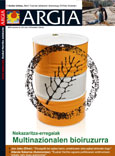

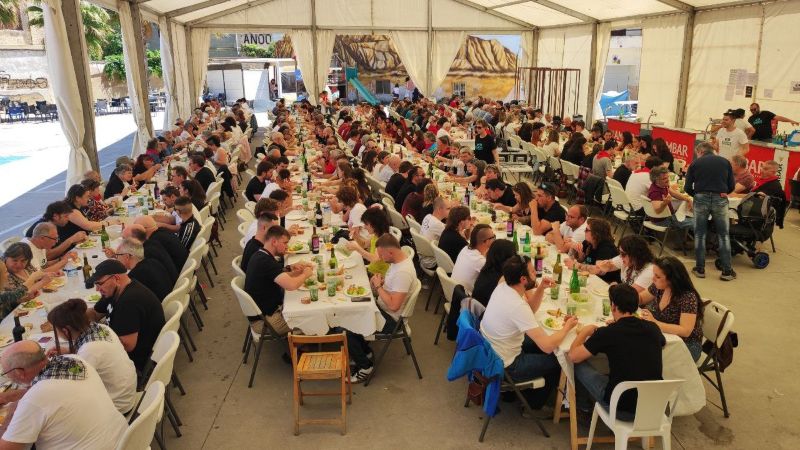
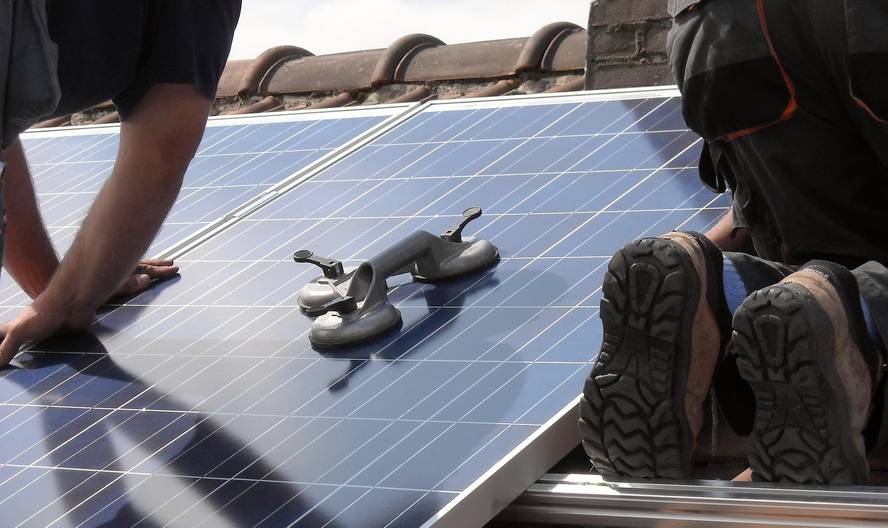
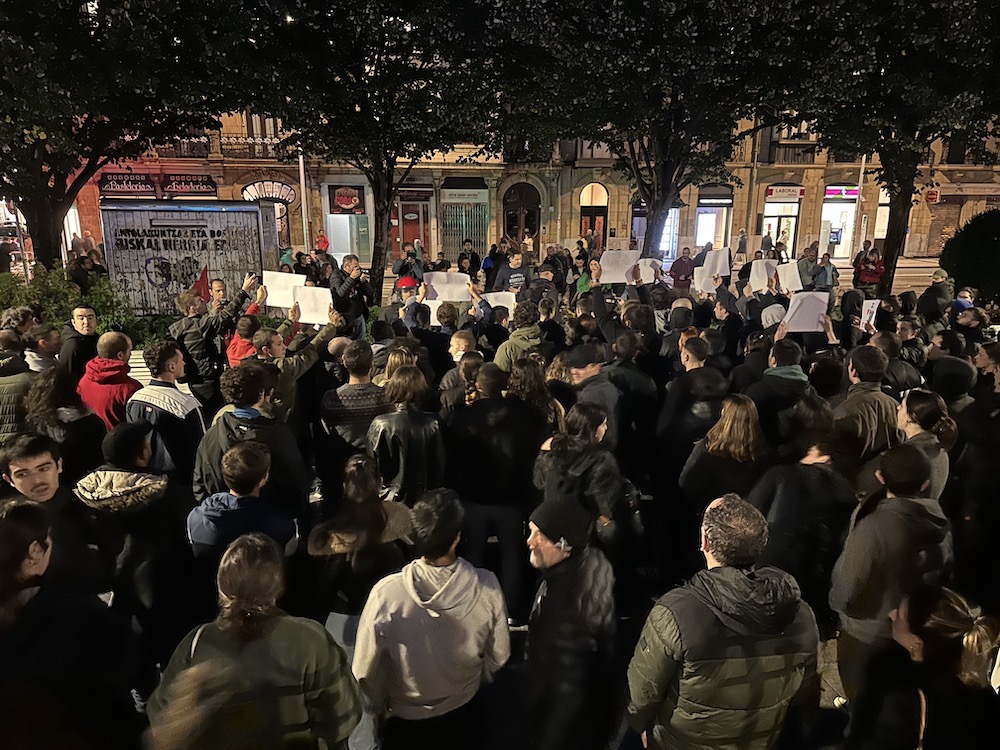
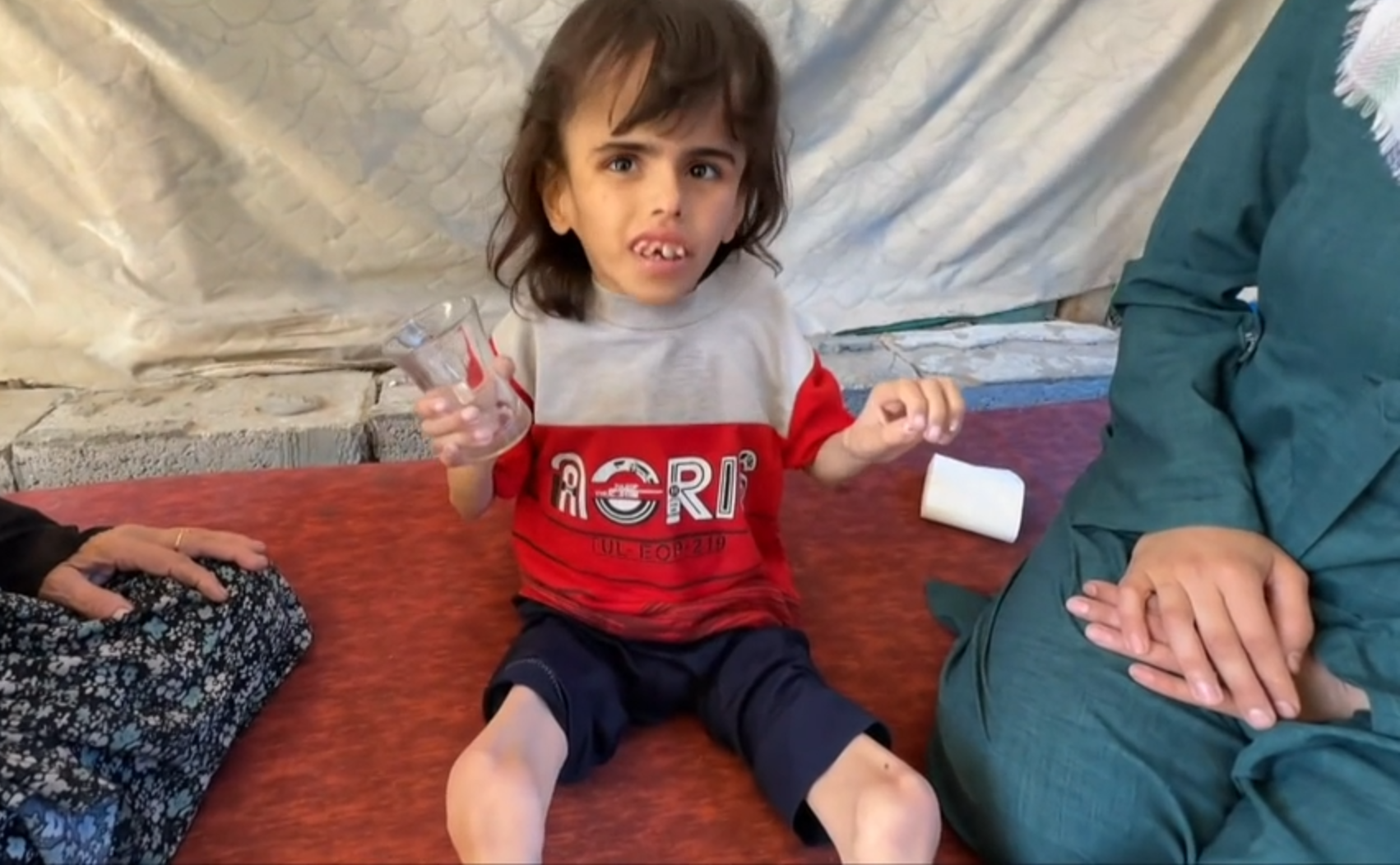
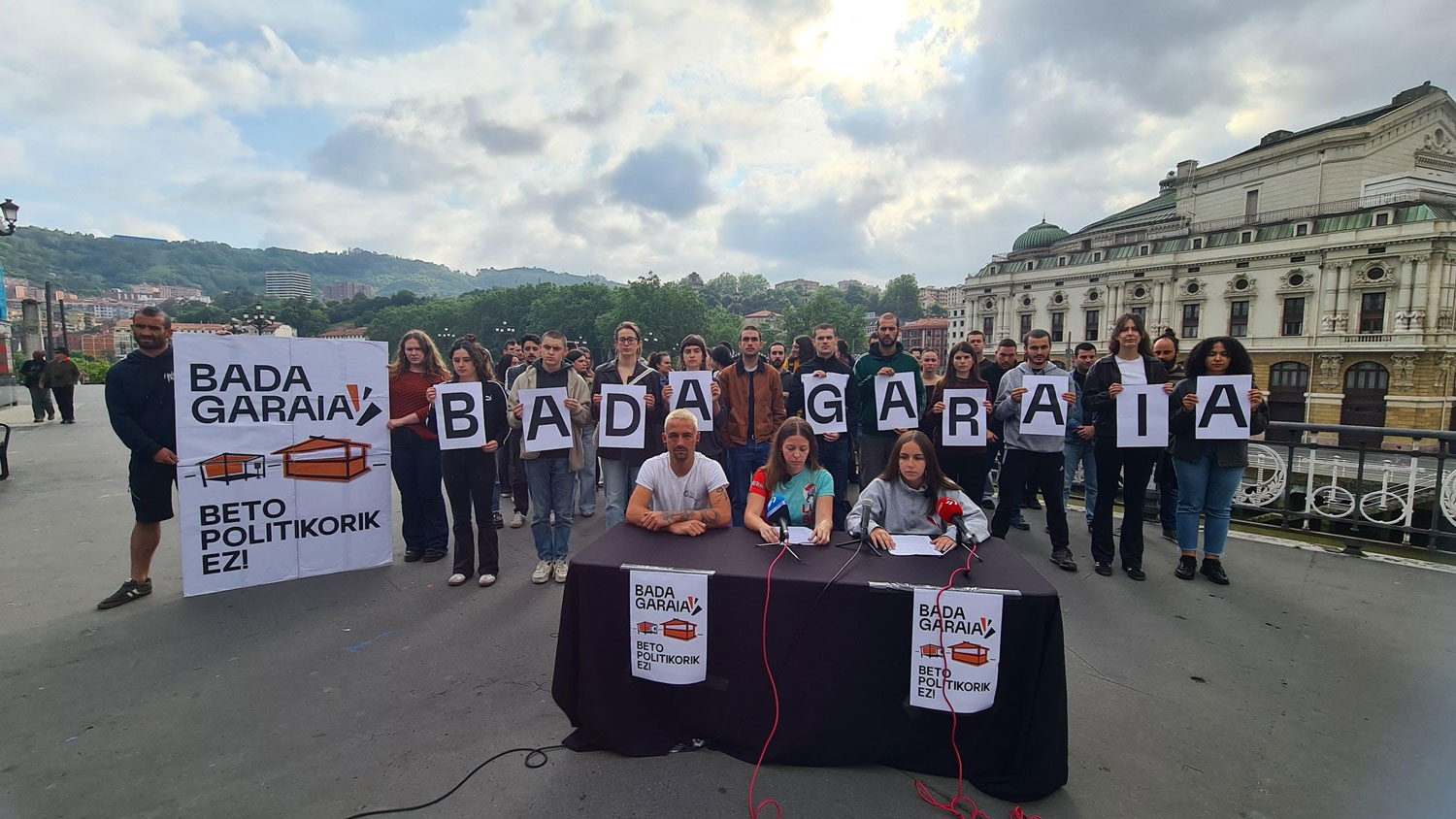
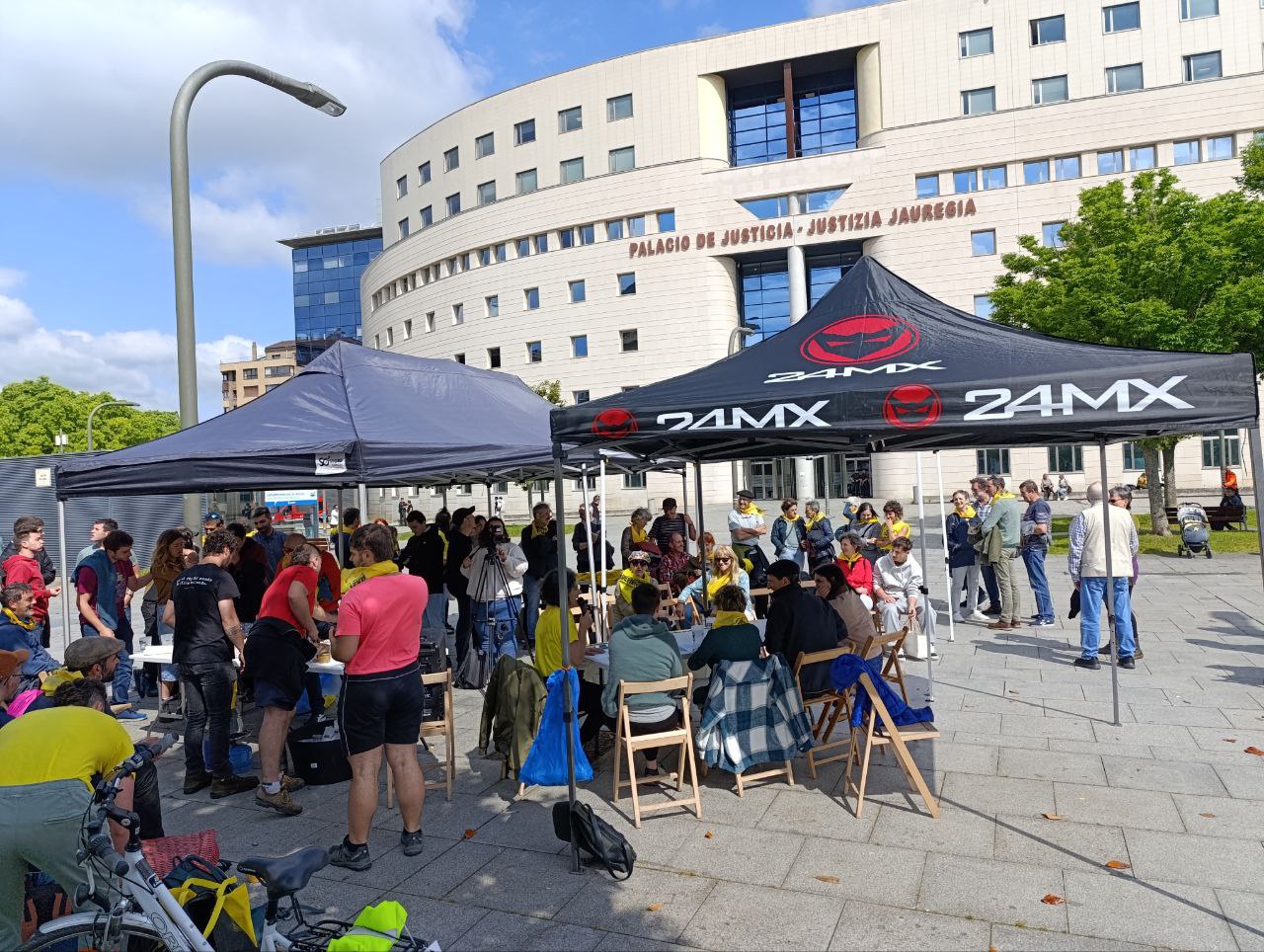
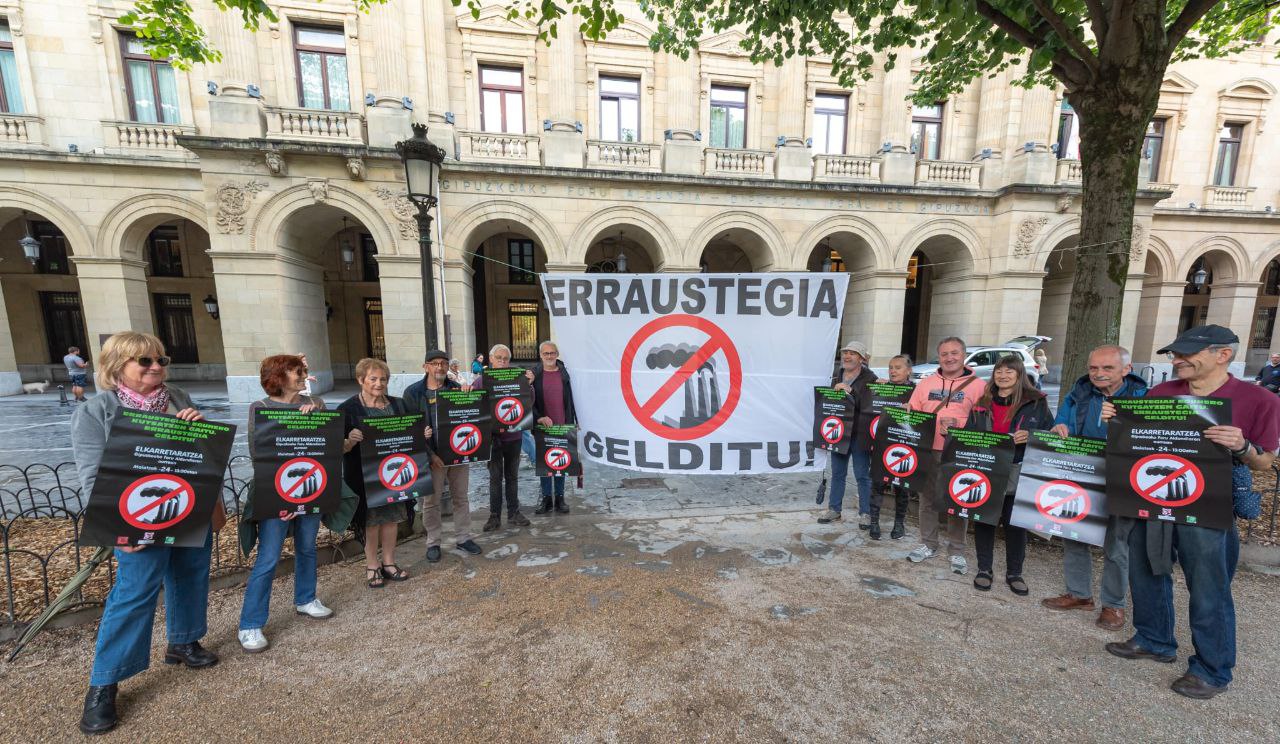
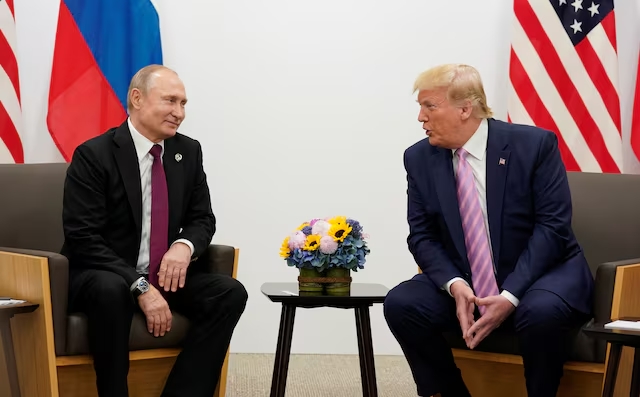
.jpg)

